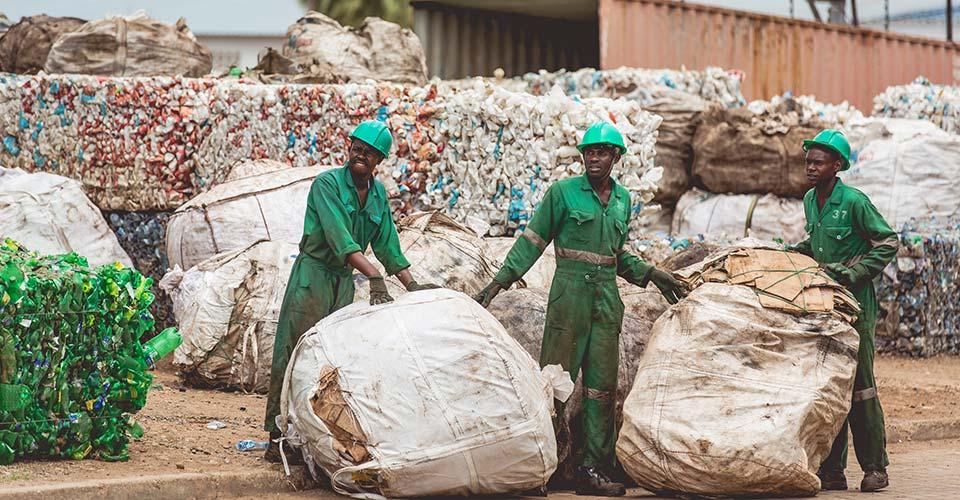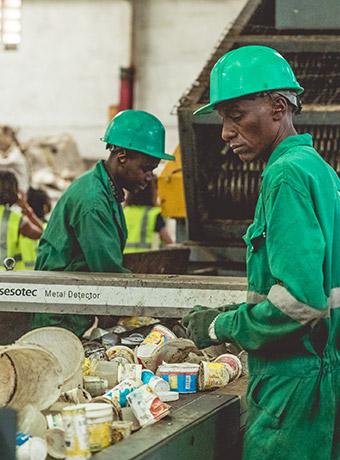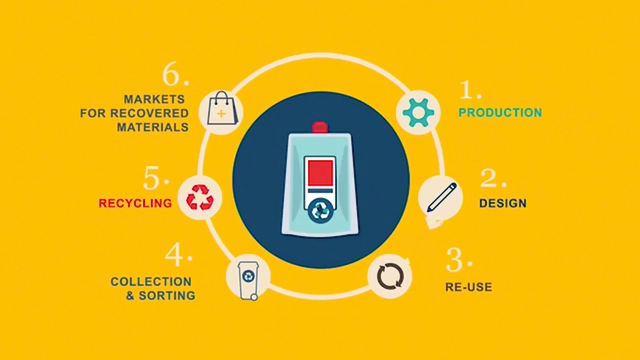Recipe for Success: Ending Plastic Waste in Africa
Together, we will be able to further advance towards systematically changing the game of plastics recycling in Africa.
By Adwoa Coleman
During the first wave of COVID-19 stay-at-home orders in 2020, it wasn’t uncommon to open your social media feed and see videos of friends and family baking an array of desserts, puddings, and breads to pass time in the home. “Just add 1 cup of milk…” the aspiring professional chef would say before proudly presenting the baked goods at the end of the video. Over time, in most cases, the finished product would get better as they perfected the recipe and learnt the right techniques.
This analogy holds true for what we have learnt about ending plastic waste in Africa. In the last few years, we have implemented many pilot projects across the continent aimed at diverting plastic from landfill and the environment and into recycling and other alternative end-uses. It has taken many revisions to the “recipe” to settle on our strategy today.
So, if you were to ask me what the key ingredient is for Africa, I would say, “Just add capital, several cups of collaboration, a spoonful of flexibility and keep learning to perfect the technique.”
What have we learnt through our work in plastics sustainability in Africa over the years?
Out of the many valuable lessons, I’d like to share the following key learnings that helped optimize the recipe:
- Socio-economic factors are directly related to sustainability, recycling, and other environmental issues - they cannot be decoupled. Unfortunately, many people only embrace recycling or waste management if it is a means to a job or livelihood.
- Solid waste management dynamics differ from community to community, and from country to country, so these complex nuances need to be considered carefully in project development.
- Flexible packaging is high in demand across Africa yet it one of the most neglected waste streams because it is harder to recycle and currently offers lower-income opportunities for informal waste workers. At the same time, flexible packaging is often the most sustainable choice with the lowest overall environmental impact.
How do we inspire good practice around waste: REFLEX Africa
These lessons have led to the development of our flagship project, REFLEX Africa, which demonstrates how we are creating new business models in the continent to directly impact the collection of flexible packaging into recycling and end-use.
The Dow Business Impact Fund supports this project through a competitive grant program that designates corporate contributions toward projects that help address social problems through our technology and expertise.
The project follows a basic framework that incentivizes plastic waste collection through waste pickers; the collected material is then sorted into different plastic streams. The resulting post-consumer recycled (PCR) plastic is put into end uses and markets based on their properties. To bring this process to life, we work in partnership with innovative social enterprises across the value chain in Africa to bolster their efforts and capabilities with our scale, technical expertise, and customers.
This model helps to advance a circular economy for plastics, supports local communities, particularly those in the informal waste sector, and has been piloted successfully in Nigeria.
The financial sustainability of this project lies in the qualification and commercialization of packages in collaboration with brand owners utilizing the PCR plastic created through these projects in addition to boosters will enable demand for the material, so less flexible packaging ends up in the environment.
Our role has mainly been three-fold:
- Raise awareness of the value of flexible packaging and incentivize its collection, working with innovative partners to address critical waste management inadequacies and create a market for the material, while supporting jobs and livelihoods for waste pickers.
- Provide our technical expertise towards the creation of high-quality PCR plastic to be used in new packaging and other end-uses.
- Work with brand owners to design packaging structures which utilize PCR plastic to help meet our and their sustainability goals.
Our latest milestone: Mr. Green Africa
In December 2021, we took this new business model to the next level when Dow made an equity investment in recycling company Mr. Green Trading Africa Kenya Ltd (MGTA), which enables the collection, sorting, cleaning, and segregation of plastic waste in Nairobi, Kenya.
Mr. Green Africa was the first recycling company to be a Certified B Corporation on the African Continent. Its operations are rooted in its social purpose: to better the livelihoods of informal waste collectors while also cleaning up the environment. The company uses a technology-driven plastics collection model to enable the collection and processing of specific plastic waste streams, including flexible materials, before mechanically recycling it into PCR plastic, supplied to brand owners in Africa for use in new packaging applications.
They do all this while also providing community members the chance to earn a fair, predictable, and transparent income. Together, we will be able to further advance towards systematically changing the game of plastics recycling in Africa.
Mr. Green Africa’s model is an excellent example of the intersection of business and social justice in Africa, which is a key pillar in our strategy. We are delighted that this incredible milestone has come at the beginning of 2022. The spirit of entrepreneurship and the penchant for turning problems into solutions on the continent is not lost on us. And we also know that amongst the many barriers to jointly solving sustainability issues like plastic pollution, lack of capital ranks high.
These ingredients and investments in Mr. Green Africa and the REFLEX projects across the region will continue to support Dow’s global citizenship and business commitments to help advance sustainable initiatives, including closing the loop with a circular economy for plastics and stopping the waste.
Adwoa Coleman, Ghana Country Manager, Africa Sustainability and Advocacy Manager, Packaging and Specialty Plastics




